PLAY Introduction
This play is inspired by a recent post on LinkedIn from Atlassian. The new way of working must focus on personal relationships, authenticity & accountability, collaboration and responding to change. But how? This play will break-down each of these four areas into action so that you can be successful in 2021 and beyond.
PEOPLE
1+ depending on if you work through this play on your own or with a team.
TIME
30-60 minutes per activity. No one wants to be in a meeting longer than needed. Try to keep it short and sweet.
NINJA LEVEL
Novice to Master. Anyone can improve work life skills and master this play!
PREP WORK
PLACE
Virtually or in-person it is critical that everyone has face-time with each other. So make sure that if attending virtually that everyone can connect in video chat. You will also need to share ideas, so a whiteboard is important and a space that fosters creativity and innovation.
THE PLAY
All of our plays are five steps or less! However, you may need to run multiple plays to get the most out of this one. Don’t worry – you can do it! Learn the play, rehearse it regularly, apply it in the field and debrief on the outcomes. If it worked well, use it again; if it didn’t, find out why. Are there new factors in the system you need to consider, or do you just need to keep practicing? If you need help or have questions on this play, contact us!
01
SET THE STAGE
Who are the players?
Every winning team knows which players to have on the field and what talent you need on the ready. To successfully deploy this play you will need the following roster:
![]() Meeting Facilitator: If you decide to run this play as a team and meet together this will be you, but this play can be done all on your own. Skills needed:
Meeting Facilitator: If you decide to run this play as a team and meet together this will be you, but this play can be done all on your own. Skills needed:
- Keep the team focused on the goal!
- Foster a positive and creative space for all
- Organized and prepared to run play
![]() Team Players: This is someone who actively contributes to the team in order to complete tasks, meet goals or achieve outcomes and results. Even if you are doing this play on your own, every organization relies on good teams and that means good team players. Skills needed:
Team Players: This is someone who actively contributes to the team in order to complete tasks, meet goals or achieve outcomes and results. Even if you are doing this play on your own, every organization relies on good teams and that means good team players. Skills needed:
- Communicate effectively.
- Is the 3R’s: Responsible, Reliable and Ready
- Optimistic and future-focused.
- Shows genuine commitment.
- Supports and respects others.
- Embraces collaboration.
- Actively listens.
- Problem solver.
02
CORE ACTIVITIES
PERSONAL RELATIONSHIPS
The most important single ingredient in the formula of success is knowing how to get along with people. —Theodore Roosevelt
Focus shift from process to personal relationships. This is one of those easier to say than to do activities, but with a little practice and patience anyone can do it! Building personal relationships at work is easy, as you already have lots in common. Start there and work towards a servant attitude, because who doesn’t like a person who is willing to jump in and help one another? Here are some daily habits to start practicing:
- Ensure that the relationship you have with yourself is a positive one.
- Accept and celebrate the fact that we are all different.
- Actively listen to hear what other people have to say.
- Give people time and “be present” when you are with them.
- Develop and work on your communication skills.
- Learn to give and take constructive feedback.
- Open your heart and find the courage to trust.
- Learn to be more understanding and empathetic.
- Treat people as you would like to be treated yourself.
AUTHENTICITY & ACCOUNTABILITY
Focus shift from polish & promise to authenticity & accountability. Being “real” in the workplace sounds more like a motto than a reality. This goes against what most of us were taught as children where it is more important to “fit in” with the other kids than to be our authentic selves. Here is the kicker, that believe it or not, authenticity is one of the cornerstones of success. Being authentic means being honest and genuine, which in turn builds trust and accountability.
So how do we keep it real while still being professional and respected? Authenticity is about how you conduct yourself, how you treat others, and the way you work and fit in to your corporate culture. It’s not about being nicey-nice or insincere; it’s about being real. Authenticity entails an emotional equation of:
Confidence + Self-awareness + Transparency + Consistency = Authenticity
- Be honest. This does not equal being rude or disrespectful. The key is to express yourself using kind, constructive and inclusive language. So, what’s the key? Being compassionate is key. Letting the person know that you have their best interests at heart when sharing honest feedback. Using a caring tone, letting them know that you care about them as a person even if some of their behaviors are not what they should be.
- Engage other people. In order to be authentic, you have to care about more than just yourself, so it is important to engage other people. Really listen to what they tell you. Resist the temptation to talk about yourself. Start with a curious mindset and seek to understand the other person instead of being understood. This shift in perspective will change how others see you.
- Treat everyone with respect. Be gracious, polite, and respectful to everyone, from the janitor to the vice president, from the secretaries to the baristas, from your co-workers to the garage attendants. Not only is the golden rule good for business but it is also good for life. Everyone wants to be respected and you will get more respect by giving it generously.
- Test yourself. Becoming more aware of your self, how you operate in the world, how you behave, and how you impact people is the key to using your authentic self in business. There are several great self assessments available that you can start with and then expand to find the tools that work best for your organization.
- Look at others. Studying traits of successful but authentic business people is also a good way to understand what being real looks like. There are lots of examples of great authenticity and when being authentic was cover for being rude, abrasive or disrespectful. Be on the good side of authenticity.
Being authentic means you are honest and real. It means you are trusted and counted on. It can mean all the difference in your success at work and in business.
COLLABORATION
Focus shift from competition to collaboration. Some good competition is well … good. But in today’s world it is more than winning, it is being a team player that is key. In the team roster we have listed some of the critical skills/traits of a team player, but want to take your game to the next level? Practice, practice and more practice! In today’s work world that means getting very comfortable with collaboration software.
Collaboration apps have changed the way people work, and it’s about time. A collaboration app is any piece of software that helps people get work done together. These apps save us from having to email colleagues, knock on doors, and leave voicemails every time we wrap up some element of work and pass it along to other team members. They alert people to activity on work that pertains to them. They ensure that the right people have access to the assets they need. They are essentially productivity apps that emphasize and enable teamwork.
Most collaboration apps have a free trial period and lots of online tutorials. Google, “How to use __________ to collaborate” and you will find a vast library of resources. Start with a good list of recommends and remember it takes practice to become the best!
One important point about all collaboration and communication tools is that they must have a company culture behind them. Throwing a new tool at a bunch of people and telling them to use it instead of email doesn’t work. To start using a collaboration tool successfully, all the key players on the team need to buy into it. It has to become part of the culture.
RESPONDING TO CHANGE
Focus shift from following a plan to responding to change. Change is inevitable. Sometimes it can be positive – business growth or a pay raise. At other times it can be painful – losing your job or a personal loss.
Often the hardest changes to understand and adjust to are the ones that are unexpected and out of our control – a recession, a global pandemic, or a major disaster, for example. Changes of this magnitude can be difficult to come to terms with and rarely do you have a plan for something this big. However, you’ll often find that your experience of them can be made better or worse depending on your reaction and your attitude.
Emotional Intelligence (EQ), popularized by best-selling author Daniel Goleman has been validated with multiple research studies to be a key differentiator in how someone reacts to change.
People With High EQ
- Make better decisions and solve problems
- Keep cool under pressure
- Resolve conflicts
- Have greater empathy
- Listen, reflect, and respond to constructive criticism
While emotional skills may come naturally to some people, there are things that anyone can do to help improve their ability to understand and reason with emotions. If you are interested in improving your emotional intelligence skills to benefit your workplace performance, take steps to improve your skills in the five categories of emotional intelligence: Self-awareness, self-regulation, social skills, empathy, and motivation.
Want more ways to build positive working relationships? Try these ideas from Executive Coach, Joel Garfinkle.
03
 TEAM HUDDLE
TEAM HUDDLE
Time to run the Team Huddle play. Ask the team the following questions and then take a vote. Keep follow-up questions to a minimum and capture any issues raised as an offline follow-up (and be sure to follow-up).
Understand the play?
![]() The play was understood and I asked any questions in time!
The play was understood and I asked any questions in time!
![]() I’m not sure I understand and I have some questions …
I’m not sure I understand and I have some questions …
![]() I did not understand the play or my part in it.
I did not understand the play or my part in it.
Did you get in the game?
![]() Yes, I made my moves and was in the right place at the right time!
Yes, I made my moves and was in the right place at the right time!
![]() I’m not sure I understand what I was supposed to do …
I’m not sure I understand what I was supposed to do …
![]() I kept the bench warm and watched from the sidelines.
I kept the bench warm and watched from the sidelines.
Ready for what’s next?
![]() Yes, I know the game plan and ready to win!
Yes, I know the game plan and ready to win!
![]() I’m not sure what’s next or if I am involved …
I’m not sure what’s next or if I am involved …
![]() No clue what’s next and would rather sit it out.
No clue what’s next and would rather sit it out.
04
NEXT STEPS
Continue to work on the skills and activities that help you succeed in a new world of how we work. Celebrate the wins and recognize yourself and/or the team for learning with you on how to improve.

05
IT’S A WRAP
You did it! Now just a few follow-up items:
- Reflect on the play. Ask yourself how it went? What could have gone better, what could have gone worse? In sports this is watching the game again to see any plays that could have been better. Update your playbook. Build feedback loops that help you see what’s working; what’s not; and how to continue to develop the playbook by learning, adapting and iterating constantly as situations change and new challenges arise.
- Contribute to the community of Playbook.Ninja. Sign-up for an account and receive updates on when new plays are added and help others by commenting on the plays with what worked or your experience.
Thank you for being a Playbook.Ninja
![]()








 TEAM HUDDLE
TEAM HUDDLE